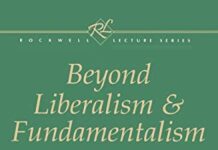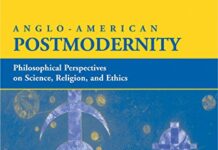
Ebook Info
- Published: 2006
- Number of pages: 166 pages
- Format: PDF
- File Size: 0.00 MB
- Authors: Nancey Murphy
Description
Are humans composed of a body and a nonmaterial mind or soul, or are we purely physical beings? Opinion is sharply divided over this issue. In this clear and concise book, Nancey Murphy argues for a physicalist account, but one that does not diminish traditional views of humans as rational, moral, and capable of relating to God. This position is motivated not only by developments in science and philosophy, but also by biblical studies and Christian theology. The reader is invited to appreciate the ways in which organisms are more than the sum of their parts. That higher human capacities such as morality, free will, and religious awareness emerge from our neurobiological complexity and develop through our relation to others, to our cultural inheritance, and, most importantly, to God. Murphy addresses the questions of human uniqueness, religious experience, and personal identity before and after bodily resurrection.
User’s Reviews
Reviews from Amazon users which were colected at the time this book was published on the website:
⭐In “Bodies and Souls, or Spirited Bodies?” Nancey Murphy investigates the question of whether humans are purely physical beings, or whether a metaphysical component is essential to our humanness (146). Using theology, neuroscience, and philosophy, she argues that moral and religious experiences are made possible by the complexity of cultural and neurological systems (6). Her thesis unfolds in three claims: first, neither the Bible nor tradition provides a normative account of human nature (23); second, we are our bodies–not hybrids of matter and something else (ix, 69); third, non-reductive physicalism does not deny our capacity for intelligence, morality, and spirituality (121). Murphy, writing in a conversational tone, concludes that Christians have much to gain by recognizing their kinship with the physical world: embodied selfhood is not an obstacle to a relationship with God, but is what enables one (6, 55, 147). Murphy gives theologians an entrance into a discussion between neuroscientists and philosophers of mind (most of whom are physicalists) concerning morality, free will, and religious awareness.The book has only four chapters. In Chapter One, Murphy begins by tracing the history of theological positions that have influenced Christian views of anthropology, and demonstrates that dualism is not theologically necessary. In Chapter Two, Murphy highlights three instances where Western science contradicts dualism: modern physics, the Darwinian revolution, and contemporary neuroscience. Having built a theological and scientific case against dualism, Murphy develops her own position: non-reductive physicalism. The argument of Chapter Three is two-pronged–it first involves arguing against causal reductionism, and second building a case for a complex organism’s self-direction. The final chapter surveys four potential philosophical and theological problems with physicalism.The purpose of the book is to provide theological grounding to the claim that free will and moral responsibility can exist within a physicalist framework. Because of the book’s brevity, I believe that the arguments Murphy presents are not fully expounded–and therefore not fully defensible; however, the general outline provides promise to an area of research worth pursuing. This book challenges many assumptions that Western Christianity takes for granted in matters of human nature, metaphysics, and the nature of God. More significantly though, it encourages one to struggle with the meaning of the Christian life as it relates to physical awareness: our physicality–our being–and our ethical practices are tightly connected. It is a mistake to assume that the human ability for reflective thought, deep emotions, social interdependence, and spirituality requires something more than the dust of the earth; but it would also be a mistake to assume that we are merely the sum of our parts; indeed, we are fearfully and wonderfully made.
⭐In this book Murphy provides an excellent concise statement of the Christian Physicalist position. In fact I would say it is one of the clearest statements on the subject that I have read. Her arguments are strong and clear for the most part. There are only a few down sides that I can find with this book.1) I found her Biblical arguments to be very thin. Part of that is due to the length of this book. It would be hard to give an exhaustive survey of Biblical anthropology in such a limited space.2) Her account of Nonreductive Physicalism ultimately fails. She notes in the introduction that she herself is not satisfied with her arguments for this position.3) If you have read her other works then you will not find many new things here. There is a lot of repeat material taken from some of her other writings which she also admits in several footnotes.I am not convinced that dualism is false after reading this book, but I will admit that I became convinced of the defensibility of the Christian Physicalist position. Murphy’s clarity and fairness in her arguments make this book worth reading.
⭐If one is having difficulty with merging the Christian understanding of Soul with the physicality of modern neurology, then this book may help. It strives to give a clear presentation of dualistic and non-dualistic understanding of the human soul throughout Christian/Jewish traditions. A non-dualistic understanding helps integrate modern neurological conclusions about the brain within the Christian faith.
⭐Excellent discussion that is relevant to understanding the transcendent character human bodies.
⭐In this short – but eminently clear – book, Nancy Murphy takes on the challenges posed by modern science to the traditional Christian conception of the “soul”.Before getting to the Science, she looks at the philosophical and biblical basis for the belief in a “soul” separate from the body (dualism) as opposed to “spirited bodies” (a view she will later argue for) hinting at possible theological implications. She fairly summarizes the vast literature on the subject boiling the issues down in a very readable form for the average reader.Then, in the second nature, she adeptly summarizes three major challenges coming from modern science. From physics (the Copernican revolution), from biology (human evolution) and from neuroscience (modern studies on the brain).The third chapter addresses mainly the issues of reductionism and free will. This area is more complex and debatable, but she gives an excellent summary.She then goes on to discuss how a non-reductive physicalist view of human nature might be compatible with Christian salvation – finishing with a passage from James Dunn (a biblical scholar) who pulls together the view of humans as reflected in the New Testament by Saint Paul – arguing for compatibility (as long as reductionism is rejected).Ultimately, it is up to the reader to decide if the case she makes is convincing. It is certainly will challenge the presuppositions of many, but is generally well argued.
⭐Excellent intro to the issue of “Do we have a soul? Are we an embodied soul? Or spirited bodies. The reign of body-soul dualism seems to have had its day. But don’t be so quick to jump ship to a non-reductive materialism. There are other options out there. But this is a good place to start re-examining the issues.
Keywords
Free Download Bodies and Souls, or Spirited Bodies? (Current Issues in Theology Book 3) in PDF format
Bodies and Souls, or Spirited Bodies? (Current Issues in Theology Book 3) PDF Free Download
Download Bodies and Souls, or Spirited Bodies? (Current Issues in Theology Book 3) 2006 PDF Free
Bodies and Souls, or Spirited Bodies? (Current Issues in Theology Book 3) 2006 PDF Free Download
Download Bodies and Souls, or Spirited Bodies? (Current Issues in Theology Book 3) PDF
Free Download Ebook Bodies and Souls, or Spirited Bodies? (Current Issues in Theology Book 3)


